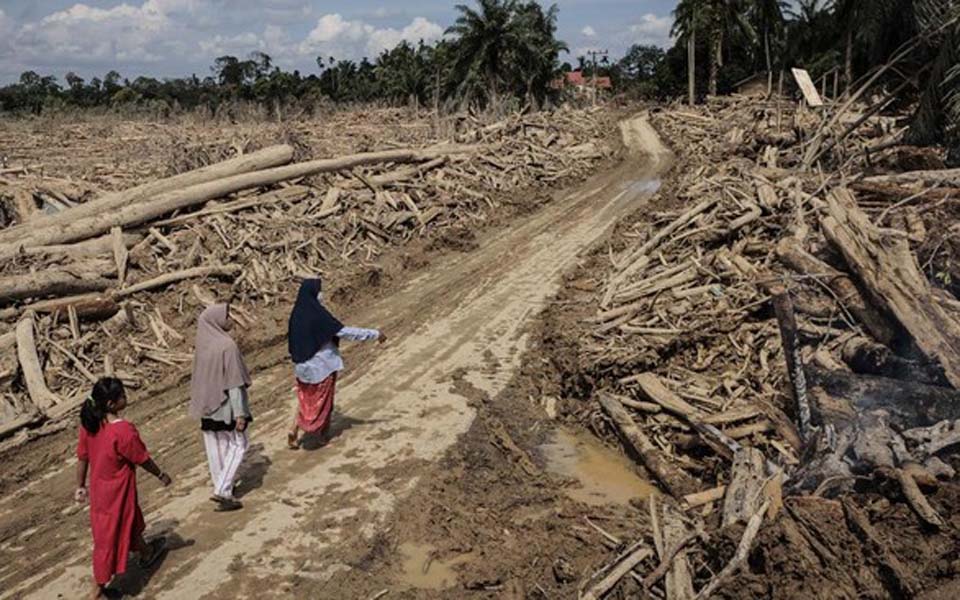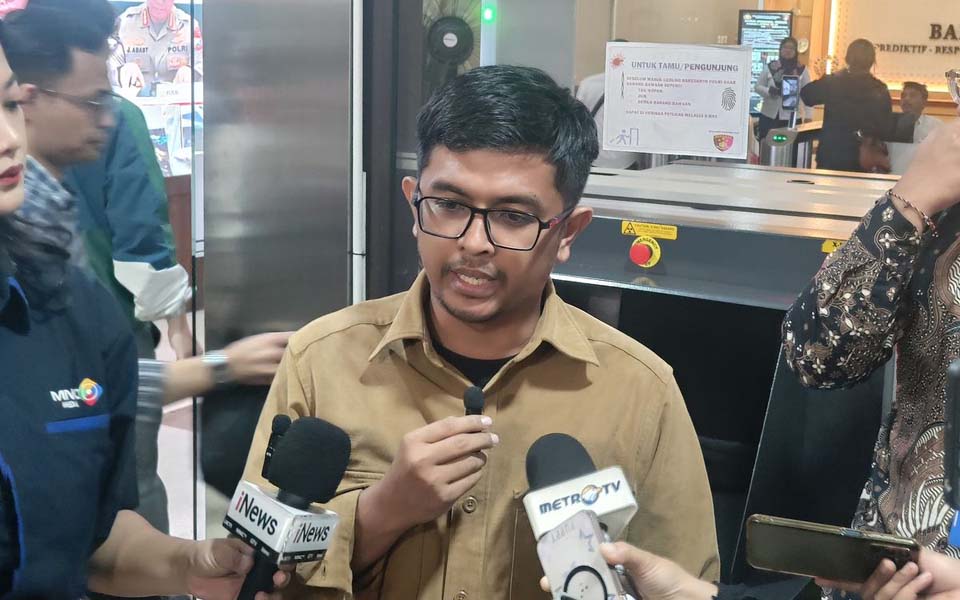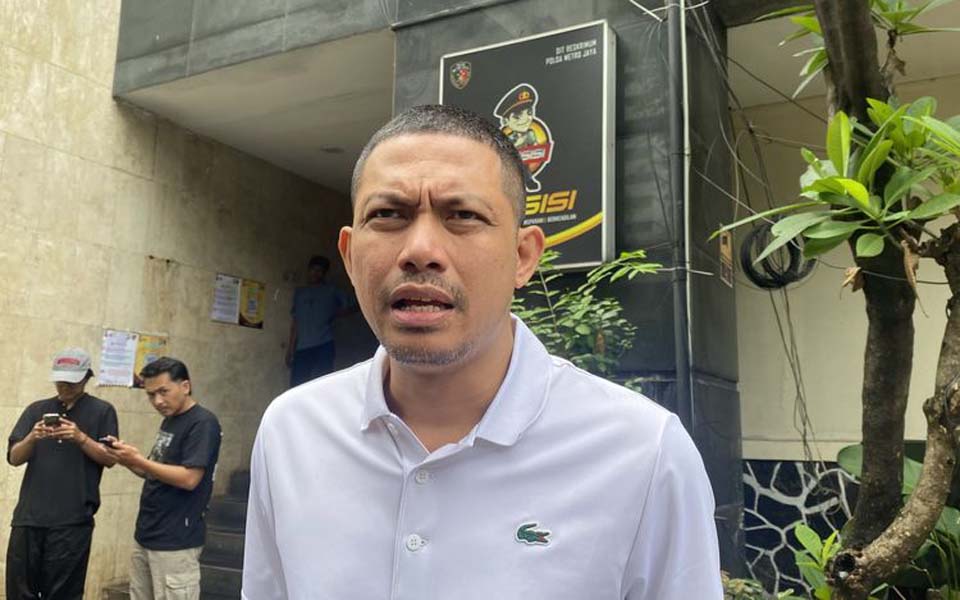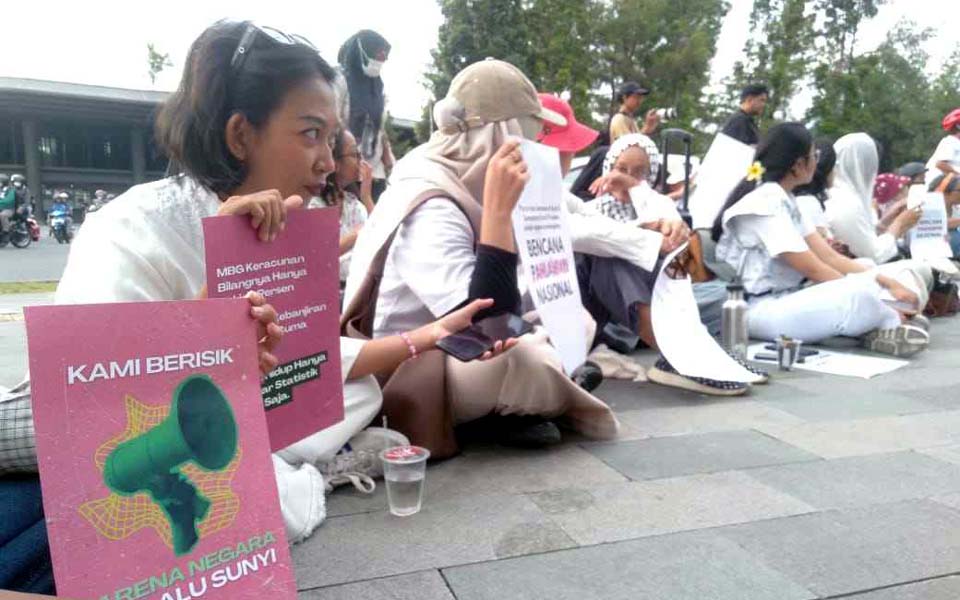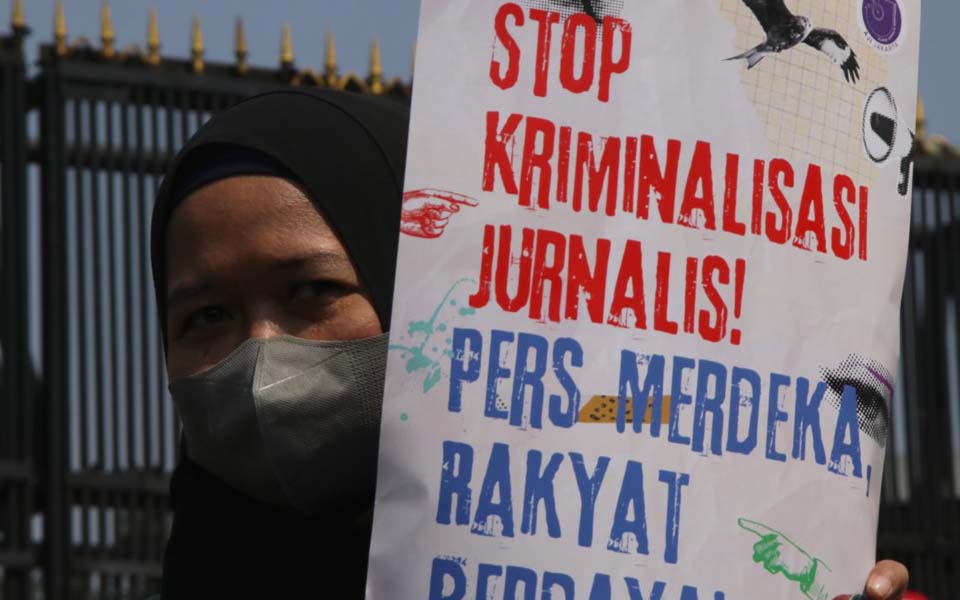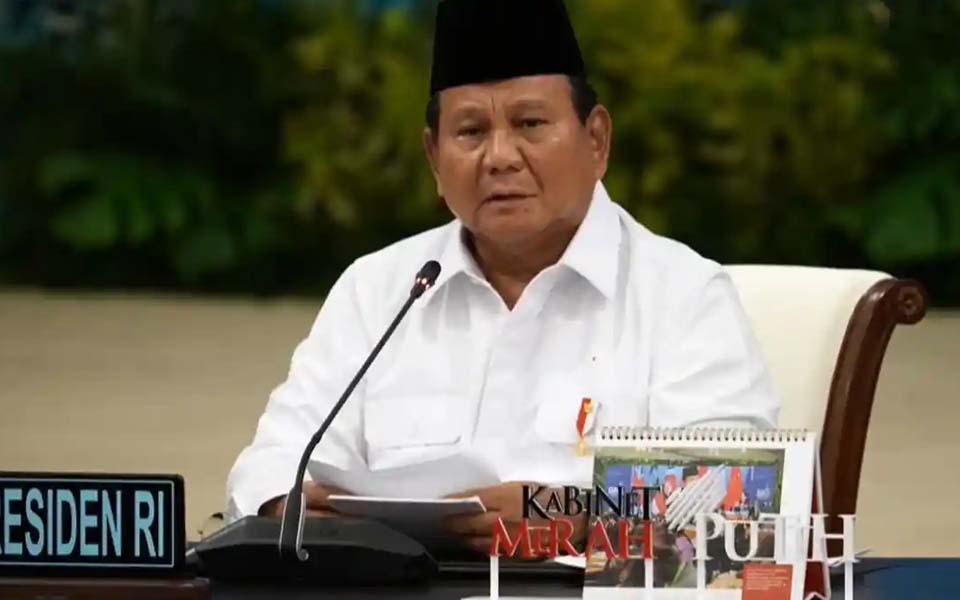Jakarta – The Civil Society Coalition for Clean Energy says it rejects the inclusion of "new energy" that still originates from fossil fuels in the Draft Law on New and Renewable Energy (RUU EBET). "[We] reject 'new energy' in the RUU EBET", the group said during a media briefing in Central Jakarta on Friday September 22.
Indonesian Forum for the Environment (Walhi) pollution control division head Fajri Fadhillah said that under Article 53 of the June 2022 version of the RUU EBET it regulates that new energy prices shall take into consideration its economic value.
"If we look at the elucidation on economic value, one of the points which has to be considered is the health benefits. Meanwhile we know, that the use of new energy that is sourced from fossil fuels actually impacts badly on long-term health, by reducing air quality", said Fadhillah.
This is despite the fact that the draft law is important in preventing air pollution in the future.
The Coalition believes that the RUU EBET could play a role as a legal umbrella to maintain healthy air quality in Indonesia, bearing in mind that one of the sources of air pollution is electricity generation based on fossil fuels such as coal.
Aside from the health benefits, the RUU EBET also includes other important considerations related to the use of energy sources including investment costs, the environmental and social benefits, and the benefits of reducing green-house gas emissions.
Despite this, these considerations actually conflict with the choice of energy sources being used by still relying on fossil fuels disguised as new energy.
"The government and the DPR [House of Representatives] must focus on regulating renewable energy, it does not need to be augmented again by new energy whose source we know is from where", he asserted.
Meanwhile Padjadjaran University environmental law lecturer Yulinda Adharani emphasised that the current version of the RUU EBET that is being discussed by the DPR and the government is still far from what had been hoped for, namely supporting the transition to renewable energy.
According to Adharani, the RUU EBET is not in line with the initial goal of drafting a regulation to promote the transition to energy that is more environmentally friendly.
She noted that the RUU EBET gives the same space to new energy and renewable energy, which is in fact very counter-productive in terms of Indonesia's efforts to move away from its dependence on fossil fuels.
"The term 'new energy' isn't recognised in the international community. And when Indonesia should be more ambitious in achieving its renewable energy mix targets, the draft regulation that is currently being drafted is not in fact in line with this ambition", said Adharani.
Adharani believes that in fact Indonesia currently needs a clear legal umbrella related to renewable energy. Therefore she is recommending that the DPR and the government form a special institution or body whose role would be to manage renewable energy so that the energy transition targets are managed properly.
Aside from this, she is asking that the provisions on new energy be included in revisions to sectoral laws and the focus of the RUU EBET be on renewable energy.
"There needs to be a strengthening of regional government and public participation in managing renewable energy. [While] still paying attention to the environment and prioritising environmentally friendly technology. Because after all, in the current draft that exists at the moment, it already stipulates that this regulation will consider the environmental benefits, it's just that the realisation of this provision still needs to be emphasised", she explained.
Also speaking at the media briefing, the chairperson of the Student Executive Council (BEM) from the University of Indonesia Science and Mathematics Faculty (FMIPA UI), Naufal Ammar Motota, took the opportunity to say that Indonesia's commitment to and the implementation of renewable energy mix has still not been realised.
He explained that Indonesia has committed to achieving a minimum of 23 percent renewable energy in 2025. But as of 2022, Indonesia's renewable energy mix had only reached 14.11 percent and is far less than coal which comprises more than 67 percent of the national energy mix.
"It's like the government has lost direction because it is confusing new energy and renewable energy in the RUU EBET. It is this lack of clarity over priorities that will become a problem in itself for energy transition in Indonesia in the future", said Motota.
Motota said that the government and the DPR must think about long-term solutions to the problem of air pollution, greenhouse gas emissions and the environment, which will later have an impact on Indonesia's economy.
According to Motota, the solution to the problem could begin with a regulation that is clear and strong in preventing the bad impacts of the current choice of energy sources.
"Right now we can already see the bad impacts of the use of coal-fired power plants with the many people who have been affected air pollution, and so far there are no solutions or measures being offered. We students will be actively pushing stakeholders to take the steps that are needed", he said. (dis/dzu)
[Translated by James Balowski. The original title of the article was "Masih Pakai Fosil, Koalisi Sipil Tolak Energi Baru dalam RUU EBET".]







